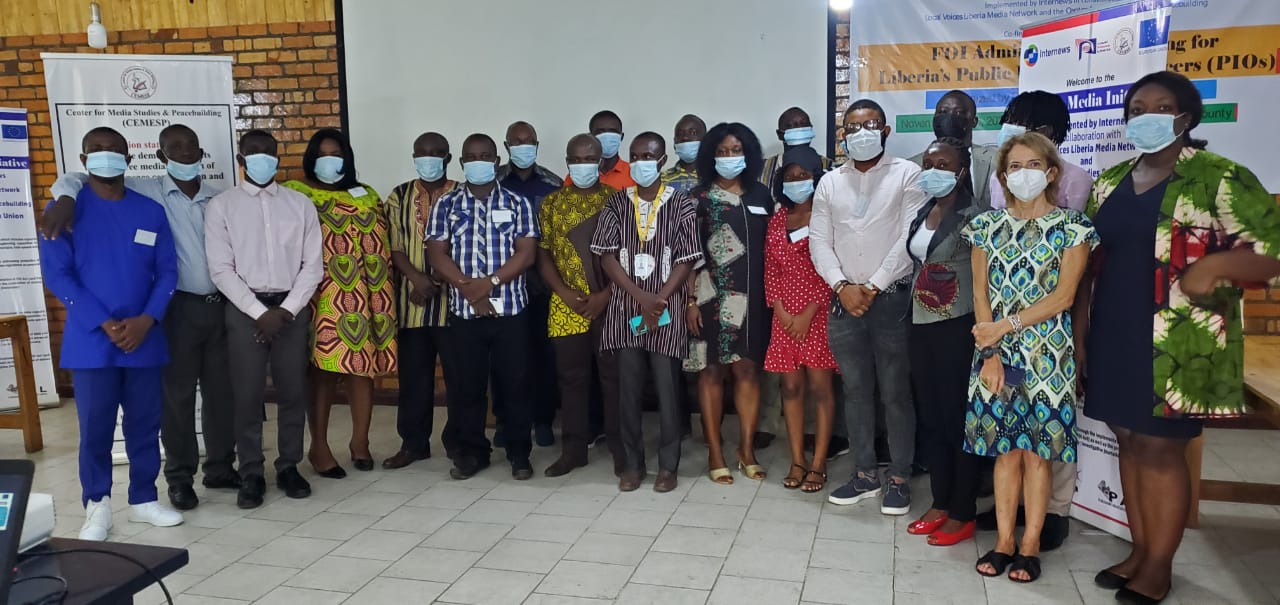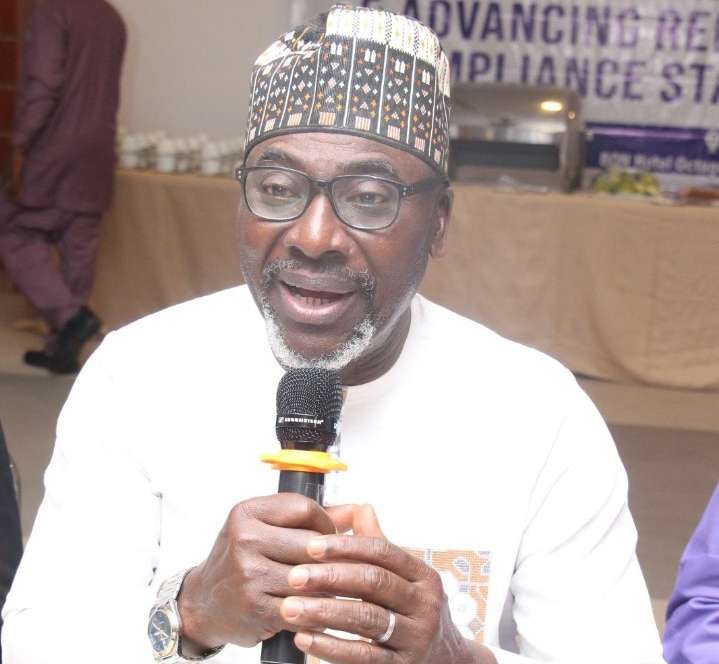The Center for Media Studies and Peacebuilding (CEMESP) has commenced a three-day training for Public Information Officers (PIOs) across government ministries and agencies.
The training, which began on Wednesday, November 24, 2021, is aimed at affording PIOs administrative training about the processing, handling, and delivery of Freedom of Information (FOI) Requests.
Organized by CEMESP in collaboration with Liberia’s Independent Information Commission (IIC), the training forms part of the “Liberia Media Initiative” project which is co-funded by the European Union and implemented with Internews and Local Voices Liberia.
Malcolm Joseph, CEMESP’s Executive Director, said the objective of the training is to “strengthen institutional capacity and build relationships with IIC in supporting access to information.”
Mr. Joseph appreciated Internews and the European Union for supporting the initiative.
The President of the Press Union of Liberia (PUL), Charles Coffey, who graced the occasion also remarked with a call for a mutual relationship between Public Relations Officers and the media to ensure the free flow of information.
Mr. Coffey disclosed that the Press Union had received several complaints regarding the delay in providing information and response to FOI requests.
“It is the responsibility of Public Relations Officers at public institutions to provide information upon request,” Coffey said urging PROs and PIOs to do so “voluntarily.”
The PUL President also commended CEMESP and Internews for organizing the workshop to provide increased knowledge and awareness on FOI to PROs and PIOs.
The activities under the Liberia Media Initiative Project are been entirely funded by the European Union to tackle misinformation and disinformation as well as increasing demand for the use of Freedom of Information law in Liberia.
Laura Virgili, Program Officer, Political & Governance Sector of the European Union Office in Liberia, reminded the participants and stakeholders that they all must work for public institutions including the European Union.
She said she understands that it can be tiring and time-consuming when pursuing and responding to information requests but, “we have to apply the effort to do so.”
“While we want access to information”, she said, “we are also aware of the kind of information that can, and cannot be shared that is why this workshop is important to help us understand what information can be shared.”
Madam Virgili re-emphasized that it is the role of Public Information/Relations Officers to do the filtering of information requests and respond to those requests.
She cautioned that if public officials cannot inform the public on how their money is used, they cannot expect citizens to be effective in paying taxes.
“If I put my money in a company and cannot receive information on how it is spent, I will stop investing in that Company,” the EU Program Officer for Political & Governance Sector concluded.
Freedom of Information (FOI) is a fundamental human right for all persons irrespective of gender, religion, or race that is protected by national and international human rights instruments.
The establishment of an Independent Information Commission (IIC) in Liberia is an attempt to ensure that this fundamental right is enforced and adhered to by the government.
Mr. Emmanuel Howe, the IIC’s Executive Director said the commission finds it difficult to reach out to public institutions mainly due to budgetary constraints.
The IIC work he said is strongly “centered” on Public Information Officers without whom, the IIC cannot report on the status of FOI.
He however stated that the IIC is currently developing its first annual report since the commission was established and the report can only be generated from PIOs/PROs who are responsible to provide information to the IIC.
Howe emphasized that the law provides that public institutions are to send data (report) to the IIC for collation and submission to the National Legislation in the form of an Annual FOI Status Report.






